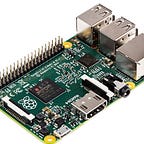Effective Code Review Practices for Your Development Team
Introduction
Code reviews are a fundamental practice in modern software development. They ensure code quality, facilitate knowledge sharing, and reduce bugs before code reaches production. While code reviews are crucial, conducting them effectively can be challenging. This article will walk you through best practices to make your code reviews more effective and efficient.
Set Clear Goals
Before diving into the code review process, it’s essential to set clear goals. Define what you aim to achieve, such as improving code quality, ensuring compliance with coding standards, or transferring knowledge between team members. Having clear objectives will help keep the code review focused and productive.
Establish Code Review Guidelines
Establishing guidelines ensures that all reviewers are on the same page regarding what to look for in the reviews. This could include:
- Code readability and maintainability
- Correctness and bug detection
- Performance concerns
- Security issues
- Adherence to coding standards and best practices
Use Automated Tools
Leverage automated code analysis tools to catch common mistakes before a human review. Tools like ESLint for JavaScript or Pylint for Python can automatically detect a plethora of issues, freeing up the reviewers to focus on more complex concerns.
Encourage Positive and Constructive Feedback
Code reviews can sometimes lead to a negative atmosphere if not handled carefully. Always provide constructive feedback, and focus on the code, not the person. Frame suggestions positively and offer explanations for why changes are recommended.
Keep Reviews Small and Focused
Break down code reviews into manageable sections. Large pull requests can be daunting and counterproductive. Aim for smaller, more focused reviews to make the process faster and more efficient. This also helps reviewers to concentrate better on the specific changes being made.
Use a Checklist
A checklist can be an invaluable tool during code reviews. It ensures that all critical areas are covered consistently. For example:
- Are there sufficient tests?
- Is the code following the established style guide?
- Are there any potential performance issues?
- Is the code modular and reusable?
Regularly Rotate Reviewers
Rotating reviewers helps in knowledge sharing and ensures that different perspectives are considered. It also prevents the code review process from becoming monotonous for any team member. Fresh eyes can catch issues that might be missed by someone who has become too familiar with the code.
Track and Measure Code Review Effectiveness
Finally, it’s essential to track and measure the effectiveness of your code reviews. Collect feedback from your team and identify areas for improvement. Metrics such as the time taken for reviews, number of defects found post-review, and the overall satisfaction of the reviewers can provide valuable insights.
Conclusion
Conducting effective code reviews requires planning, clear objectives, and a structured process. By implementing the best practices outlined in this article, you can ensure that your code review process is efficient, productive, and a positive experience for your development team. Remember, the ultimate goal is to foster a collaborative environment that leads to better software quality and team growth.
